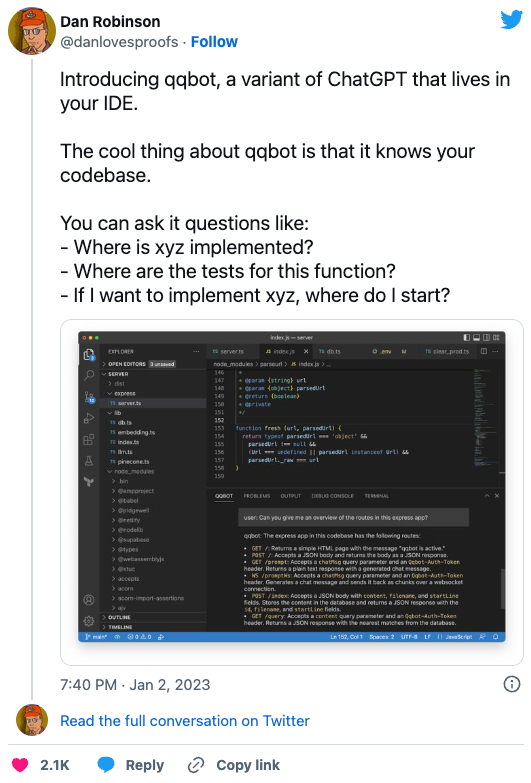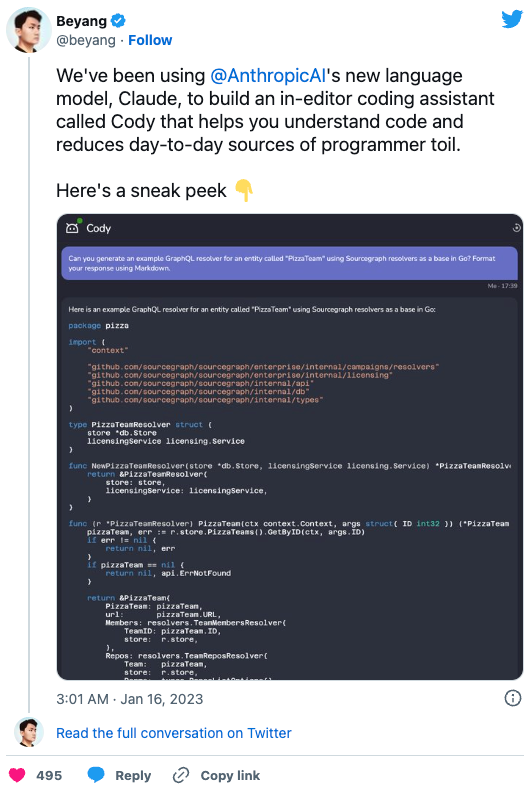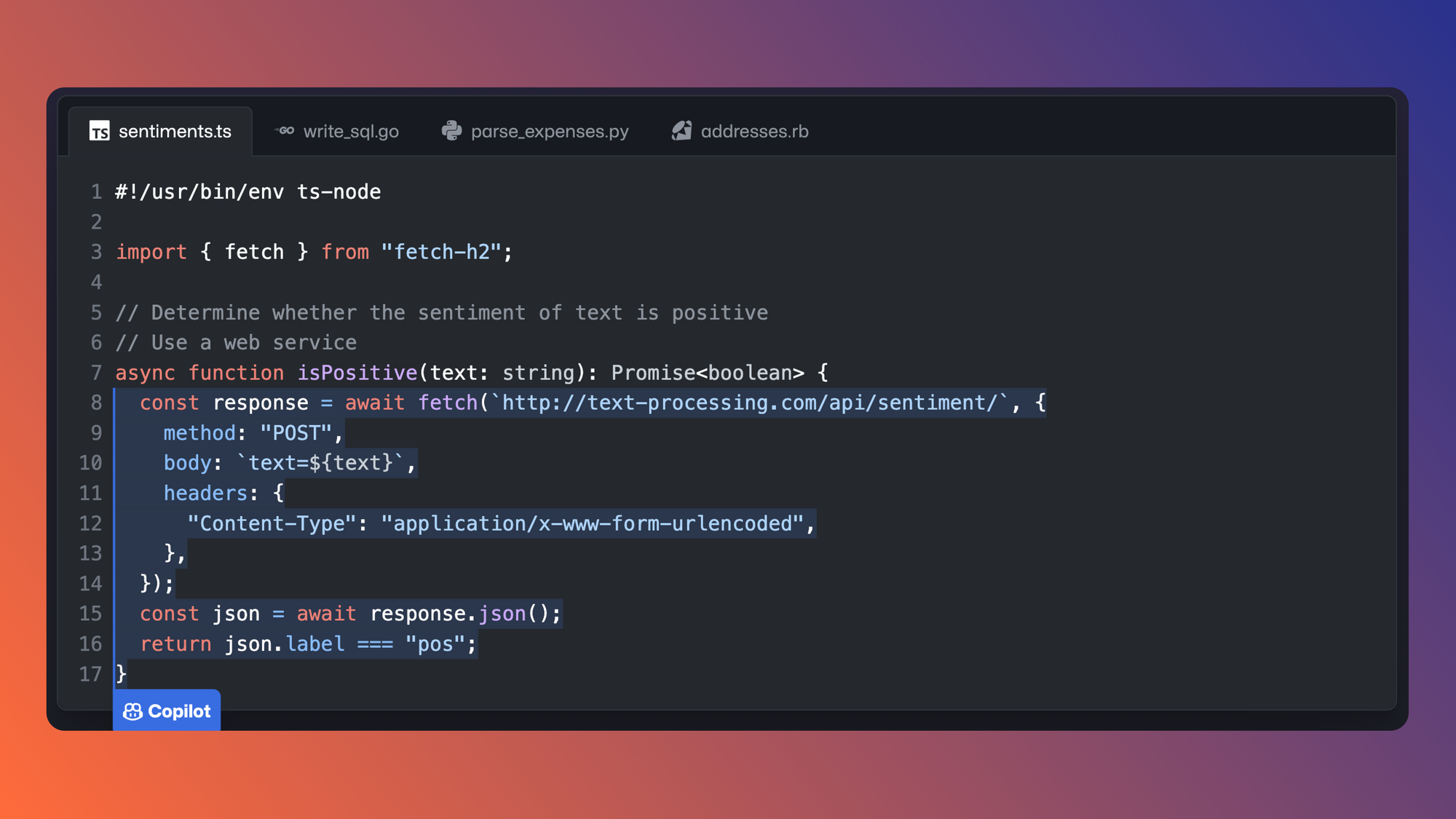Over the past decade, there has been an explosion in low-code/no-code platforms. Products like Retool, Appsmith, Bubble, and hundreds of others allow people to create software much faster than purely writing code.
However, low-code/no-code platforms don't have a long-term future. The ultimate death knell for no-code is finally here: AI-driven software development.
I'll walk through why below.
No-code's fatal flaw: opaque, closed systems
All low-code/no-code platforms have two fundamental value propositions:
- Speed: you can build things faster using a no-code platform than writing code.
- Accessibility: non-developers can use no-code platforms to write software, expanding the set of possible app creators.
Every no-code platform is a closed platform. They control the entire end-to-end development experience in order to achieve the above goals. The underlying representation of the apps you build is typically a proprietary domain-specific language.
This tradeoff seems great when you first start using these platforms to build simple apps. But no-code app creation is still software development. Even if you're not literally writing lines of text into an IDE, the hard parts of coding are still present when using a low-code/no-code platform:
- Many of these platforms offer visual building blocks that look easy to use, but it's still a Turing-complete system under the hood.
- To use these platforms to create non-trivial apps, you still need to think in terms of abstraction and exercise all the same basic skills of software engineering.
- When teams collaborate on no-code solutions, they still need to handle things like versioning and conflicts.
As a result, these platforms end up needing to re-implement everything that developers take for granted. They have to re-create their own (usually subpar) versions of IDEs, version control, code review, integration testing, and more.
Dev tools are making code easier and easier
This situation is compounded by the fact that innovation in dev tooling is faster than ever. Lightweight dev platforms like Vercel or Netlify, maturing standards around deployment to Kubernetes, and dozens of other innovations have accelerated code-based software creation. No single no-code company can compete with the combined investment and creativity of every dev tools startup.
Dev tools startups, open-source frameworks, and methodologies exist to speed up and simplify every part of the software development process. This means that the speed of programming and the accessibility of programming to a wider audience has been increasing steadily, chipping away at the comparative advantage of no-code.
Why AI will displace no-code
While the rapid pace of dev tools innovation erodes no-code's value propositions gradually, AI-driven software development will likely displace no-code completely.
GitHub Copilot was released in 2022 and made an immediate impact. The reaction among software developers has been mixed, with many folks saying that the reliability and quality aren't yet trustworthy. But a large set of veteran software engineers also swear by it and there are studies showing huge productivity gains among Copilot users.
We've only seen the v1 of Copilot's AI-driven autocomplete. It's easy to imagine a v2 where error rate and overall performance are far better, and a v3 where you can specify increasingly large and complex blocks of code to autogenerate. AI lends itself so well to code for a couple reasons:
- Code-writing is error-tolerant. If an LLM generates something that’s not 100% correct, you can keep the parts that work and delete the rest.
- Code is inspectable. AI can easily be trained to understand your codebase and work in different domains.
Other than autocomplete, there are several other ways in which AI will massively change software engineering. Below is a demo of qqbot, a chatbot that lives in your IDE and lets a developer quickly gain context about a large codebase through natural language Q&A:

Or Sourcegraph, a code search engine. In addition to engineers, other roles like product managers and sales operations use it to understand what’s happening in a codebase and make small changes. Sourcegraph recently announced Cody, an in-editor coding assistant that can generate code, write shell commands, explain concepts, and contextualize it all with knowledge of your codebase:

The advances we’ll see in software development due to AI over the next decade will dwarf anything that no-code tools will be able to match. No-code platforms, being built on top of completely proprietary closed systems, will be much less able to take advantage of AI and so their speed advantage will disappear.
No-code's accessibility advantage will also not last. The next generation of AI-driven IDEs will massively expand the set of people who can write code. Code-based software development will soon have all the speed and accessibility that no-code offers today with none of the downsides, making no-code obsolete.
(And yes, we built Airplane as a code-first developer platform for the above reasons. Airplane allows you to build internal tools much faster than from scratch. The advantage with Airplane is that everything is represented in e.g. JavaScript or Python, and everything benefits in advancements in developer productivity.)



